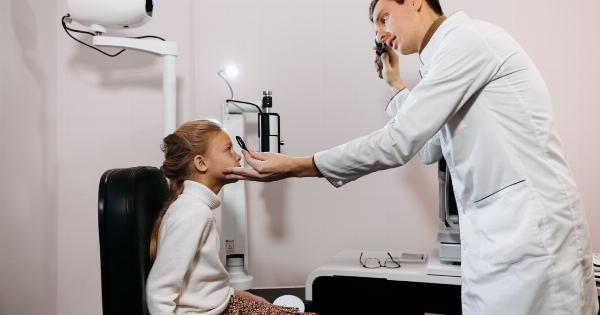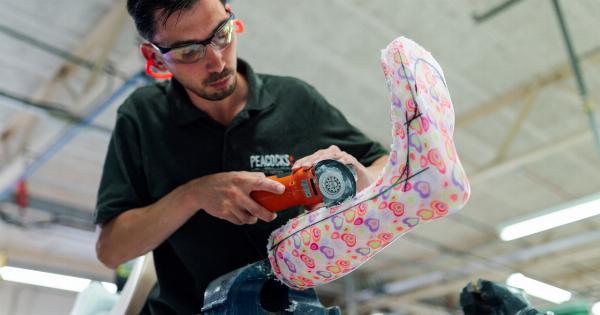World AIDS Day is observed on December 1st each year, providing an opportunity for people worldwide to unite in the fight against HIV/AIDS.
On this significant day, physical therapists (PTs) also play an essential role by taking a stand and contributing their expertise in healthcare and rehabilitation to support individuals living with HIV/AIDS. In this article, we will explore the impact PTs make on World AIDS Day and the significance of their role in providing care and support to those affected.
1. The Importance of Physical Therapy in HIV/AIDS Care
Physical therapy plays a crucial role in improving the quality of life for individuals living with HIV/AIDS. The condition can have various physical manifestations, such as muscle weakness, joint pain, and balance impairments.
PTs are trained to address these challenges and develop customized rehabilitation programs to alleviate symptoms, improve mobility, and enhance overall functional ability.
2. Enhancing Mobility and Functionality
PTs work closely with individuals living with HIV/AIDS to restore and enhance their mobility and functionality. They devise exercise routines and therapy plans that target specific issues, such as muscle weakness or balance problems.
By working on strengthening muscles and improving coordination, PTs help patients regain their independence and improve their overall quality of life.
3. Managing Pain and Discomfort
Pain and discomfort are common challenges faced by individuals living with HIV/AIDS. Whether it’s due to neuropathy, muscle aches, or joint stiffness, PTs can employ various techniques to manage and alleviate these symptoms.
This may include manual therapy, therapeutic exercises, heat or cold treatments, and other modalities to help individuals experience relief and improve their daily functioning.
4. Addressing Neurological Complications
HIV/AIDS can affect the nervous system, leading to complications such as peripheral neuropathy, cognitive impairments, or even HIV-associated neurocognitive disorders (HAND).
PTs work hand in hand with other healthcare professionals to address these neurological complications through specific interventions tailored to each patient’s needs. By targeting motor skills and cognitive function, PTs contribute to optimizing the individual’s overall neurological health.
5. Improving Respiratory Function
Respiratory conditions, including pneumonia and other lung infections, can be severe complications for individuals living with HIV/AIDS.
PTs play a vital role in improving respiratory function through respiratory exercises, breathing techniques, and airway clearance methods. By enhancing lung capacity and promoting efficient breathing, PTs can mitigate the impact of respiratory conditions and help patients maintain a healthy respiratory system.
6. Providing Emotional Support and Education
PTs not only focus on the physical aspects of HIV/AIDS care but also provide essential emotional support and education to individuals and their families. Coping with a chronic condition like HIV/AIDS can significantly impact mental well-being.
PTs offer counseling, emotional support, and guidance, ensuring patients feel heard, understood, and supported throughout their journey. Additionally, they educate the patients and their families about self-management strategies, disease progression, and the importance of adherence to treatment plans.
7. Collaborating in a Multidisciplinary Approach
Physical therapists work closely with a multidisciplinary team of healthcare professionals to provide comprehensive care for individuals living with HIV/AIDS.
This team may include doctors, nurses, social workers, psychologists, and other specialists who collaborate to address various aspects of the patient’s physical and emotional well-being. By working together, they ensure a holistic approach to treatment and support, leading to better outcomes for the patients.
8. Promoting HIV/AIDS Prevention and Awareness
PTs are not only involved in providing care and support for individuals living with HIV/AIDS but also play a crucial role in prevention and awareness efforts.
On World AIDS Day, they actively participate in educational campaigns, community outreach programs, and events to promote HIV/AIDS prevention measures, encourage testing, and raise awareness about the importance of early intervention. By leveraging their expertise, PTs contribute to reducing the stigma associated with HIV/AIDS and fostering a more inclusive and supportive society.
9. Research and Evidence-Based Practice
PTs are committed to evidence-based practice, continually updating their knowledge and skills through research and professional development.
By staying informed about the latest advancements in HIV/AIDS treatment and rehabilitation, PTs can provide the most effective and efficient care for their patients. They actively contribute to research studies focusing on physical therapy interventions in HIV/AIDS care, further enhancing the evidence base for their valuable contributions.
10. Making a Lasting Impact
Physical therapists play an essential role on the front lines of HIV/AIDS care throughout the year, not just on World AIDS Day.
Their expertise, compassion, and dedication contribute to the well-being and improved quality of life for individuals living with HIV/AIDS. By addressing both the physical and emotional aspects of the condition, PTs make a lasting impact and continue to support and empower their patients to live life to the fullest.





























